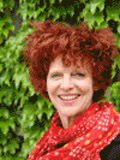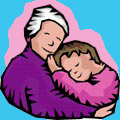 By Ann Webster, Ph.D.
By Ann Webster, Ph.D.
Benson-Henry Institute for Mind/Body Medicine at Massachusetts General Hospital
Former Director of Mind/Body Medical Institute Harvard Medical School
As the director of the Mind/Body Medicine Cancer Program, I have seen how hundreds of people cope with a diagnosis of cancer. Some respond to this challenge with remarkable resiliency, seeing an opportunity to grow and develop, to find greater meaning and purpose in their lives. They see the trauma as a “turning point,” a “wake up,” and they think of themselves as survivors, not victims.
Resilient folks spend little time wishing life would go back to what it used to be. They understand that “used to be” is gone. They are able to create a new way of going on.
In my Mind/Body Cancer Program, I help participants look at their lives through new eyes and see their cancer as an opportunity to awaken to what really makes their lives worth living. I ask BIG questions, questions we rarely think about until we experience some sort of shake-up:
- What is really meaningful in your life now?
- What are your passions?
- Why are you here?
- What are the gifts you have to give?
- What is God’s will for you to do?
When people begin answering these questions, they shift from a feeling of loss of control and despair to one of gratitude, optimism and joy. They find new meaning and purpose in their lives. Studies show that these positive emotions benefit peoples’ physical well-being.
As Viktor Frankl says in his book Man’s Search for Meaning: “Finding this new meaning enables the individual to regain an inner hold on life.”
An opera singer in my cancer group years ago came to Boston from Lebanon to get better medical care. She felt depressed and complained that her music had lost all meaning since she learned she had stage-4 lymphoma. She hadn’t sung for two years. We did a goal setting exercise in which I asked the group those five BIG questions. Weeks later, she told me, “I’m singing again!” After thinking about her passion, she submitted her demo CD to a conductor at Symphony Hall in Boston. He invited her to audition, and she sang in a gospel concert soon after. “I was sitting around waiting to get well in order to sing again,” she told me. “I realized, instead, that I needed to sing in order to get well.”
Here’s how the goal-setting exercise works:
Get a notebook, or paper and a pen. Find a quiet place and a comfortable chair. Now, go back to those five BIG questions. Close your eyes and take a few easy breaths. Take 15-20 minutes to contemplate your goals and dreams for your future, whether it’s tomorrow or next year. Be open to possibilities. Focus on these parts of your life:
- career or education
- relationships
- creativity
- play
- health
- material objects
- spirituality
- altruism
- self-transformation
When you have answers, open your eyes and write them down. You will find that some of your goals seem very important, while others can be delayed or let go. If the important ones seem too overwhelming or impossible, break them down into baby steps.
When you begin to make these things happen, notice how you feel, emotionally, physically, and spiritually. Then send me an e-mail to share your story. awebster.mindbodymed@gmail.com












